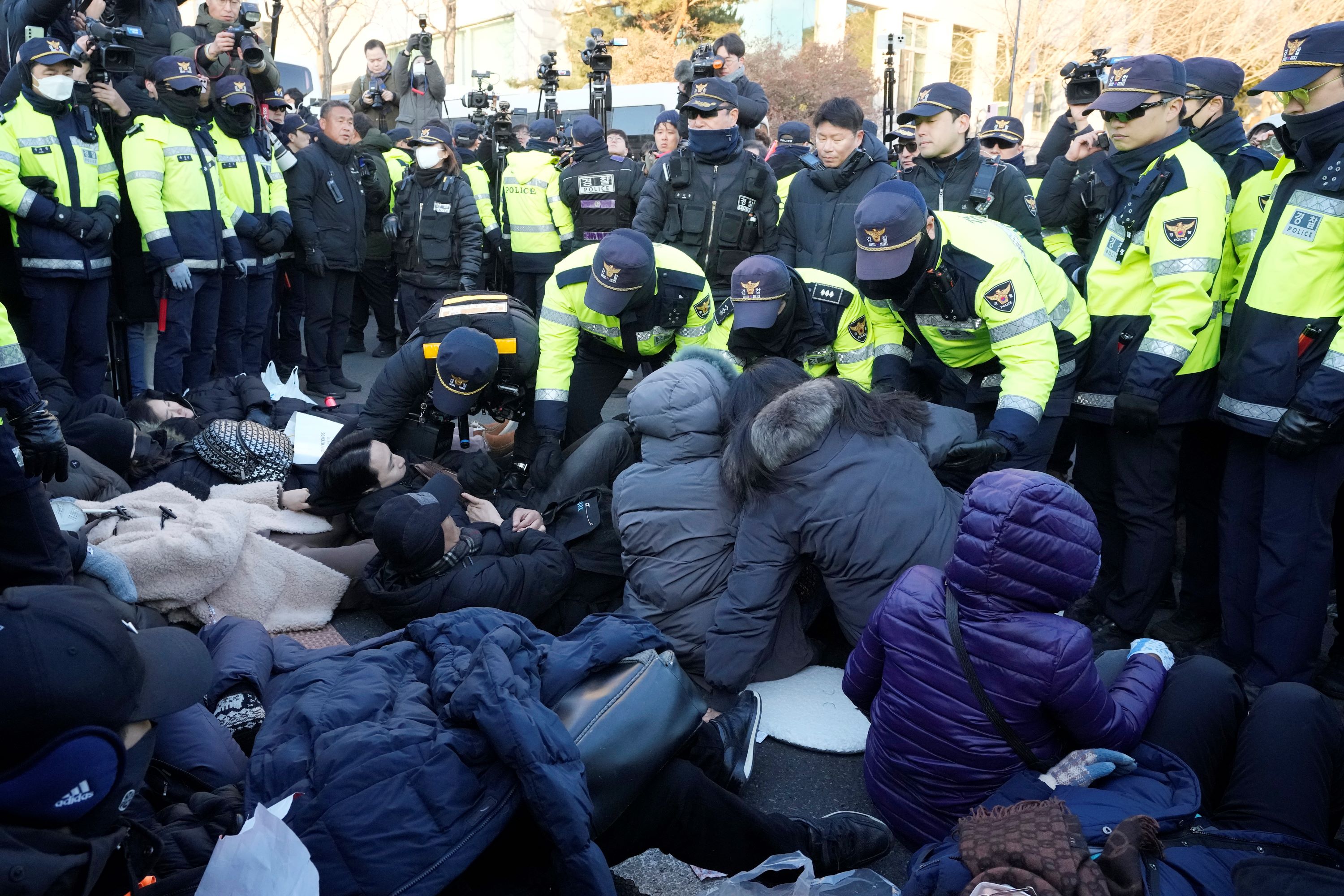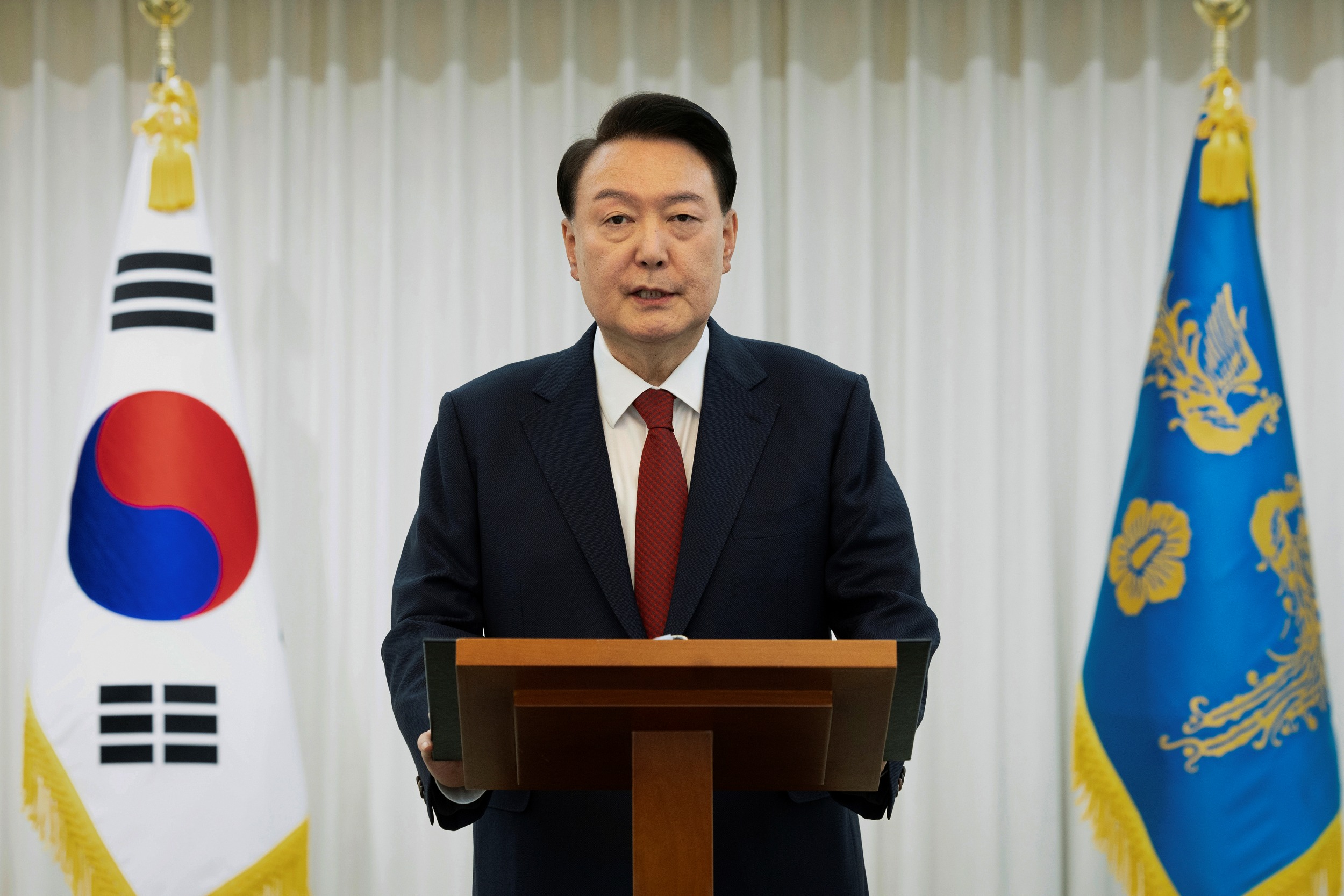
SEOUL - South Korean police dispersed some of the supporters for the impeached President Yoon Suk-yeol on Thursday afternoon near the presidential residence in central Seoul, Yonhap news agency said.
Police officers broke up about 30 supporters, who had lain down on the road in front of the presidential residence's main gate to block investigators from entering the residence.
The officers grabbed the limbs of the supporters and pulled them out one by one, moving them elsewhere by force.
The warrant to arrest Yoon was issued by a Seoul court on Tuesday, and the joint investigative unit to probe Yoon's martial law imposition in early December reportedly planned to raid the presidential residence as early as Thursday afternoon.
The arrest warrant was scheduled to be effective for a week until Jan 6.
READ MORE: S. Korea's presidential aides offer to resign amid political crisis
It marked the first time in the country's modern history that an arrest warrant was issued against a sitting president.
The impeachment motion against Yoon was passed in the National Assembly on Dec 14 and was delivered to the constitutional court to deliberate it for up to 180 days, during which Yoon's power is suspended.
Yoon earlier sent a letter rallying his supporters saying he would "fight till the end", a lawyer said on Thursday.
"I am watching on YouTube live all the hard work you are doing," Yoon wrote in the letter late on Wednesday to his supporters.
"I will fight till the end to protect this country together with you," he said in the letter, a photo capture of which was sent to Reuters by Seok Dong-hyeon, a lawyer advising Yoon.

The opposition Democratic Party, which has majority control of parliament and led the impeachment of Yoon on Dec 14, said the letter proved Yoon was delusional and remains committed to completing his "insurrection".
"As if trying to stage insurrection wasn't enough, he is now inciting his supporters to an extreme clash," party spokesman Jo Seoung-lae said in a statement.
Insurrection is one of the few criminal charges from which a South Korean president does not have immunity.
READ MORE: South Korea court issues arrest warrant for President Yoon
Separately, Yoon's trial on impeachment is being heard at the Constitutional Court. The court will hold the second hearing on Friday. Yoon has been suspended from presidential duties and Finance Minister Choi Sang-mok has taken over as acting president until the outcome of the trial.
If the court upholds the impeachment and Yoon is removed from office, a new presidential election will be held within 60 days.
ALSO READ: S. Korea's investigation unit seeks arrest warrant for president Yoon
Yoon Kab-keun, a lawyer for the impeached president, said the arrest warrant was illegal and invalid because the Corruption Investigation Office for High-ranking Officials (CIO), which is leading a joint team of investigators that include the police and prosecutors, did not have the authority under South Korean law to request a warrant.
The warrant for Yoon's arrest and also a search of his office and residence was issued after the conservative career prosecutor defied repeated summons by investigators to appear for questioning in the criminal investigation separate from the Constitutional Court trial.
A former defense minister who officials said recommended Yoon declare martial law has been indicted on charges of insurrection and will go on trial on Jan 16. Some of the top military officers commanding the defense of the capital, Seoul, have also been indicted for their alleged involvement.


